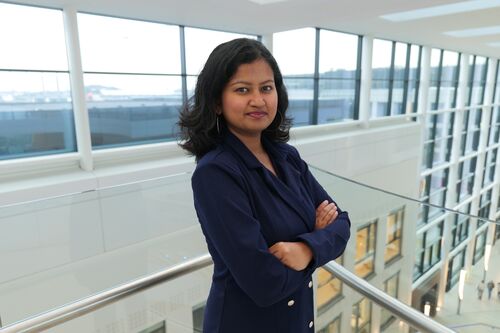
The recent suspension of USAID’s research funding casts a long and troubling shadow over the global development research community. While the policy ramifications are still unfolding, one consequence is already clear: young researchers—especially those from low-income backgrounds and the Global South—stand to lose the most.
As a student from India pursuing higher education, I know firsthand how international development grants like those from USAID offer more than just financial support. They are lifelines. These funds often cover essential research costs, allow students to engage in global collaborations, and most importantly, make the pursuit of academic inquiry possible for those who do not have the luxury of economic privilege.
The developmental research space is already marked by significant inequity. Scholars from low-income families often have to juggle multiple responsibilities—working part-time jobs, supporting families, and coping with institutional limitations. When research funding is withdrawn, it's not just the projects that stall. It's the careers, dreams, and opportunities of hundreds of emerging scholars that are quietly crushed. Without external support, many young researchers are left with no pathway to publish, travel for fieldwork, or access necessary data and mentorships—further widening the global gap in knowledge production.
USAID has historically supported inclusive, grassroots-focused research initiatives in areas like public health, climate resilience, gender equality, and poverty alleviation. The suspension threatens the continuity of this work and risks silencing the very voices that are closest to the ground realities. Young scholars, particularly those from underrepresented regions, are not merely students—they are the storytellers, data gatherers, and catalysts for change in their communities. When they are pushed out of research because of a lack of funding, the development sector loses critical insights and alternative perspectives.
The impact goes beyond academics. Many scholarships and university collaborations rely heavily on USAID-linked funding. For students from marginalized backgrounds, this often means the difference between staying in school and dropping out. When this support is taken away, so too is the chance to contribute to a better, more equitable future through research.
There is an urgent need to rethink funding mechanisms in light of this shift. We must build more resilient and decentralized models of research funding, with local institutions and philanthropies stepping in to fill the vacuum. Governments and universities in the Global South must also recognize the need to support their own young researchers more robustly, especially in times of international funding uncertainty.
As a student deeply committed to using research to drive positive change, I find this moment frightening. But perhaps it is also a call—to rally together, to advocate for sustainable funding, and to remind the world that development research is not a luxury; it is a necessity. And it must remain accessible to those who need it the most.
 Arpita Chowdhury is a postgraduate student from India at University College Dublin (UCD), pursuing Journalism and International Affairs under the prestigious V.V. Giri Global Excellence Scholarship. She holds a Postgraduate Diploma in Journalism from the Indian Institute of Mass Communication (IIMC) and a degree in English Literature from Lady Shri Ram College for Women, University of Delhi. A former reporter at All India Radio, Arpita writes on media, politics, and digital culture for leading national and international platforms. Passionate about inclusive development, she has led youth-focused advocacy and research initiatives, and is committed to bridging global and local perspectives through storytelling.
Arpita Chowdhury is a postgraduate student from India at University College Dublin (UCD), pursuing Journalism and International Affairs under the prestigious V.V. Giri Global Excellence Scholarship. She holds a Postgraduate Diploma in Journalism from the Indian Institute of Mass Communication (IIMC) and a degree in English Literature from Lady Shri Ram College for Women, University of Delhi. A former reporter at All India Radio, Arpita writes on media, politics, and digital culture for leading national and international platforms. Passionate about inclusive development, she has led youth-focused advocacy and research initiatives, and is committed to bridging global and local perspectives through storytelling.